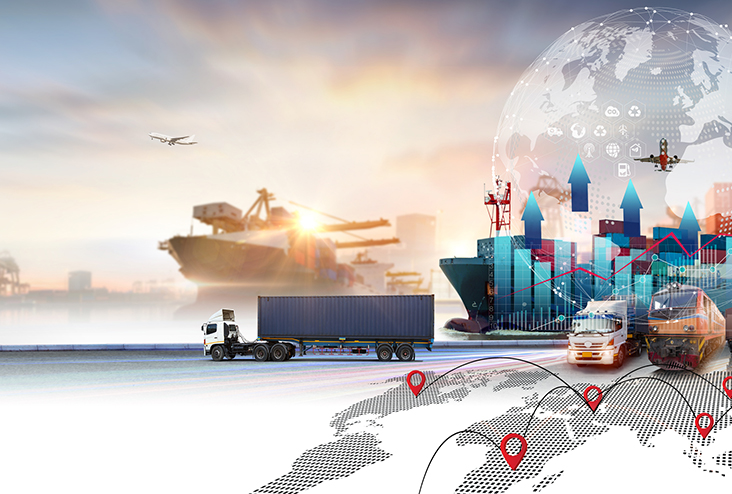President Trump’s “Liberation Day” tariffs may have created turmoil in the financial markets, but until Trump put protectionism back on the table, there had been little interest among market mavens in the chaos caused by so-called free trade to the rest of the country.
For decades, the nation’s economists and media shrugged as millions of manufacturing jobs fled the country—leaving many blue-collar communities, particularly in the Midwest, in ruins. Those who were left behind in America’s race to the bottom were sold a bill of goods promising new stability in the emerging information economy—only to see those jobs snatched up by foreign guest workers they were often forced to train. We call free trade the system whereby America has cut our tariffs while other nations impose them on us which, in turn, has created a vast gulf in the United States between the winners and losers—weakening the bonds of common national purpose. We then combined this with a glut of cheap, foreign labor from Mexico and Central America, and further diluted a national identity.
While Trump’s critics may occasionally concede that he has made some good points about the downsides of free trade, they do not like the grand proportions of his solutions. They would find fault with any legitimate effort to correct our trade imbalance with the world. For many years, those on the losing end of this deal have been prescribed morphine (sometimes literally) to numb their pain. Trump is doing something different: he wants to heal their economic wounds. This means turning off the glut of cheap baubles that have flooded our markets to fill the void of a real economy, and it entails shocks that many, accustomed to the surfeit of gilded stuff, find uncomfortable.
The constant, reliable flow of foreign commodities and indentured servants has weakened national resolve. If Trump’s protectionism is too risky for the public, then so is his plan to deport millions of illegal aliens who work in industries like agriculture, landscaping, construction, and food service. We are told that these are jobs Americans do not want, at least at the going rates, and there’s probably some truth to that. But accepting this wholesale means the U.S. must be reliant in perpetuity on a transient and culturally alien nation-within-a-nation, one that has come to steadily replace the America of our forefathers. The weekly trip to Costco near any large city offers a bleak vision of this rebirth: one encounters mobs of rude people, milling about in large crowds and blocking traffic.
The indiscriminate population displacement brought about by open borders, unlike more regional factory closures, has begun to blanket all of America except for remote regions of upper New England and the Mountain West (or gated liberal suburbs that vote consistently for these policies). This helps to explain why Trump’s immigration message struck a chord with much of the electorate while his tariff plan has been received with more ambivalence. To the critics, Trump is blindsiding voters with potentially higher prices and lower market returns while gambling with his own legacy. Why not stick to the four corners of his mandate and focus on lowering egg prices and deporting as many illegal aliens as federal judges will allow him? But Trump’s comeback was too historic—he has overcome too many obstacles, to settle for such a timid vision. Besides, repatriating millions of immigrants promises to be just as disruptive to the sham post-national economy as Trump’s tariffs, even if the public has yet to realize it.
Trump is liberated from worries about reelection and can therefore willing and able to take bold risks for the national interest. His nationalist agenda aspires to nothing less than the end of an unsustainable order that was on autopilot until his political emergence. Trump wants to restore sovereignty, self-reliance, and purpose for Americans from every region and town, and he has been open about the fact that sacrifice and uncertainty are inevitable growing pains on the way to achieving these noble aims.
His thinking is rejected with scorn by economists and journalists as antiquated mercantilism, or a romantic yearning for the past. It is not surprising that people who think and write for a living in coastal cities can tolerate an economy based on “services,” and an endless flow of culturally non-English-speaking menial workers who staff trendy restaurants and provide housekeeping and lawncare for wealthy Boomers.
George W. Bush summarized the ethos of this sort of free trade dogma when, in the aftermath of 9/11, he encouraged Americans to show their patriotism by shopping. The champions of this hollow post-nation will always find reasons why it would be too dangerous to try to rebuild something like the country we once had. Trump cannot predict the future any more than the prophets of doom at The Wall Street Journal. But he has a nearly unlimited tolerance for the unknown that places him in the first rank of political figures, at the crossroads of history. He is setting the nation’s course rather than shifting with the changing winds. We are not accustomed to seeing such boldness in our leaders, most of whom have done little more than preserve a state of decline.

Leave a Reply